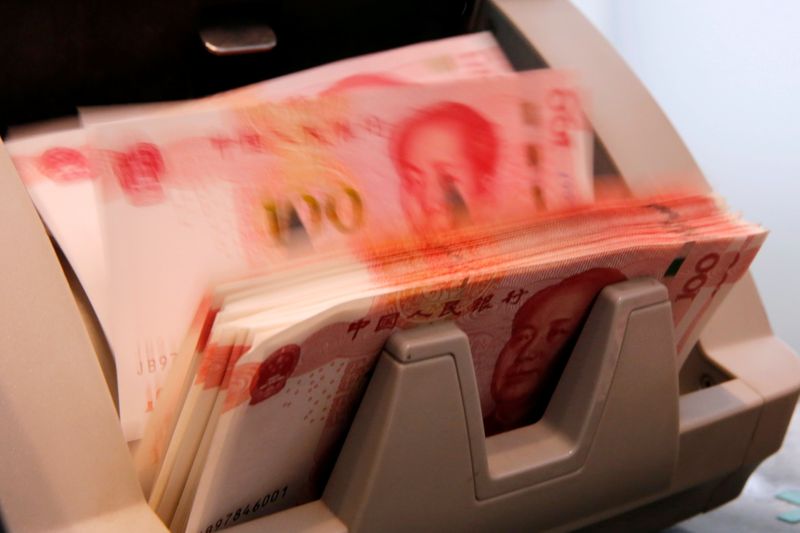BEIJING (Reuters) - China's new bank loans rose more than expected in June from the previous month, while broad credit growth also picked up substantially, as the central bank seeks to shore up slowing growth in the world's second biggest economy.
Chinese banks extended 2.12 trillion yuan ($327 billion) in new yuan loans in June, up from 1.5 trillion yuan the previous month, data from the People's Bank of China showed on Friday.
Analysts polled by Reuters had predicted new yuan loans would rise to 1.8 trillion yuan in June.
The Chinese economy has largely rebounded to its pre-pandemic growth levels, driven by the surprisingly resilient export sector. However, smaller firms are bearing the brunt of the recent surge in raw material prices, as they struggle to pass on increased costs to consumers.
To help small firms coping with rising costs, the PBOC on Friday also announced a new cut in the amount of cash that banks must hold as reserves, the first such move since April last year when the economy was still badly affected by the coronavirus crisis.
Loans to households rose to 868.5 billion yuan in June from 623.2 billion yuan in May, while corporate loans surged to 1.46 trillion yuan from 805.7 billion yuan in May.
In June, total social financing (TSF), a broad measure of credit and liquidity in the economy, rose to 3.67 trillion yuan from 1.92 trillion yuan in May and substantially higher than analysts' forecasts of 2.87 trillion yuan.
TSF includes off-balance-sheet forms of financing that exist outside the conventional bank lending system, such as initial public offerings, loans from trust companies and bond sales.
The outstanding TSF rose 11% to 301.56 trillion yuan ($46.49 trillion) at the end of June from a year earlier.
Broad M2 money supply grew 8.6% from a year earlier, also above estimates of 8.2% forecast in the Reuters poll. M2 grew 8.3% in May from a year ago.

Outstanding yuan loans grew 12.3% from a year earlier, picking up from 12.2% growth in May. Analysts had expected 12.1% growth.
($1 = 6.4855 Chinese yuan renminbi)